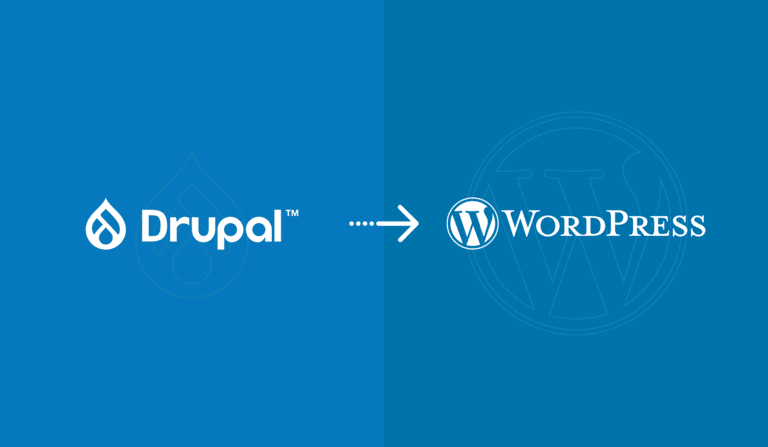Drupal to WordPress Migration Services
Certainly, the complexity and capabilities of Drupal in creating intricate websites and feature-rich web applications are well-known. However, in the long run, it might not be the most cost-effective or user-friendly choice, especially with the emergence of versatile platforms like WordPress.
If you find yourself on Drupal 7, which is approaching its end in November 2023, or even if you have upgraded to the latest version, Drupal 9, and are contemplating the shift to Drupal 10, it’s essential to evaluate your options. The updates in Drupal 10, focusing on platform security and content authoring experience, require businesses to adapt to new workflows and updated systems, potentially incurring time and costs.
In light of this, many businesses are considering migrating to WordPress to save both time and expenses. This is where Raptrr, a leading Drupal to WordPress migration agency, can step in to assist you seamlessly with this transition.

Why Migrate Drupal to WordPress?
WordPress and Drupal may appear similar initially. Both are open-source CMSs, offering various modules, plugins, and themes for smooth content creation. They are versatile, extendable, and supported by active communities, ensuring freedom from vendor restrictions.
However, it’s crucial to explore their differences thoroughly before choosing. Being a company specializing in Drupal to WordPress migration, we recognize the complexities and practical hurdles associated with these platforms. Although WordPress isn’t without its flaws, Drupal, especially with the anticipated changes in Drupal 10, poses significant challenges as an enterprise CMS. Here are three reasons why transitioning from Drupal to WordPress could benefit your business.
Why Choose Raptrr for
Your Drupal to WordPress Migration Service needs?
When choosing our Drupal to WordPress migration services, you can expect a team of experts with a proven track record. Here’s what you can anticipate when you opt for us as your Drupal to WordPress migration company.
